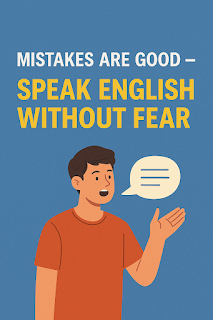English for Real Life

English for Real Life: What to Say in a Restaurant / Shop / Call By: Slow English Practice Team Have you ever found yourself in a restaurant or on a call, knowing what you want to say in your language but going completely blank in English? You're not alone. When I first moved to an English-speaking country, I thought I was “good” at English. I’d studied grammar, passed exams, and could read articles online. But the first time I walked into a restaurant and tried to order food , I froze . 🥄 At the Restaurant: My First Time Ordering It was a small café. I walked in, looked at the menu, and then… panic . I wanted a coffee and a sandwich, but instead of saying something clear, I mumbled : "Uh… one… coffee… and… sandwich… please?" The cashier smiled politely, but I could tell I didn’t sound confident. 👉 Later, I realized all I needed were a few basic, natural phrases. Here’s what I now use confidently “Can I get a…?” Example: “Can I get a cappuccino and a tuna sandwich, ...






